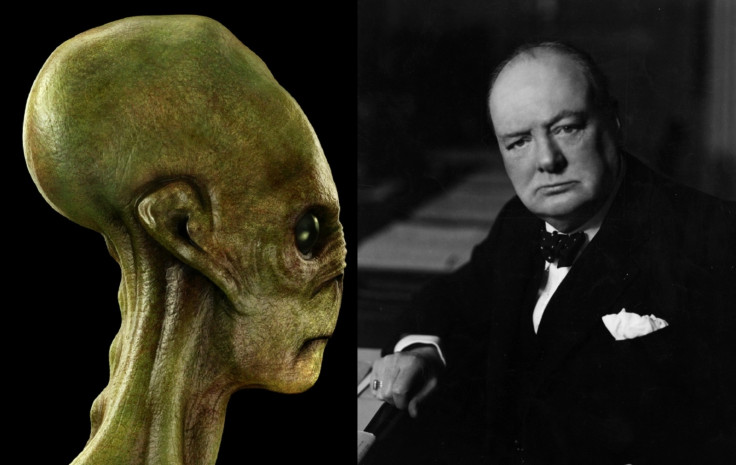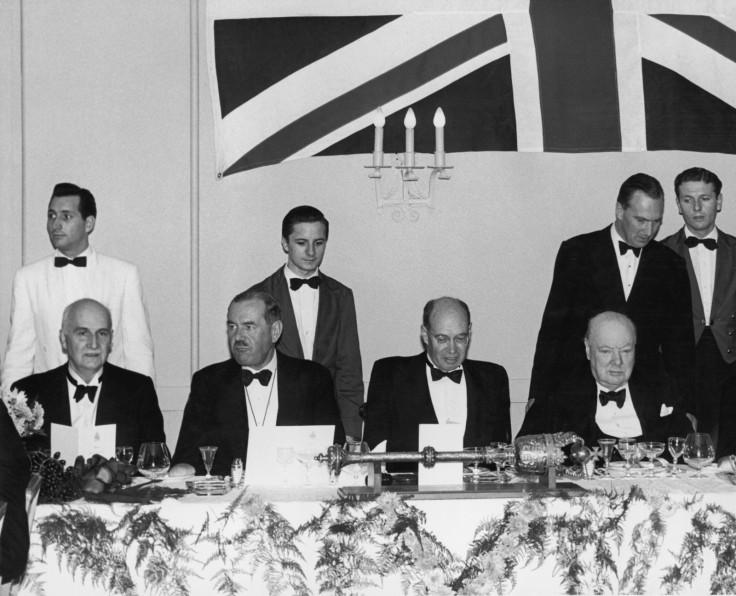Winston Churchill believed in aliens
British prime minister wrote about the potential for life on other planets in 1939.

A recently discovered essay written by Winston Churchill shows the British prime minister believed alien life could exist in the universe. In it, he says he is "not sufficiently conceited" to believe the Sun is the only star that has a family of planets, and that with so many planets potentially in existence, the odds of life existing elsewhere are high.
The essay was initially titled 'Are We Alone in Space?' but was later changed to 'Are We Alone in the Universe?' (to reflect scientific understanding). It was written in 1939, just before the onset of WWII, presumably for London's News of the World Sunday - but it was never published and its existence was forgotten, until it was recently unearthed at the US National Churchill Museum in Fulton, Missouri.
Timothy Riley, director of the museum, passed the letter to astrophysicist Mario Livio, who has written about it in a comment piece for the journal Nature. Livio notes how Churchill took a deep interest in science – being the first prime minister to appoint a science adviser.
On pondering the potential for life elsewhere in the universe, "Churchill's reasoning mirrors many modern arguments in astrobiology", Livio writes. He appears to have bought into the Copernican Principle, which says that given how vast the universe is, it is difficult to believe humans are something unique.
In his essay, Churchill talks about how we know all life on Earth requires water in liquid form, and notes that a planet would have to sit in what we now define as a star's 'habitable zone' – an area not too far from and not too close to its star. In this zone, it would be neither too hot nor too cold for liquid water to exist.

He next turns the potential of other planetary systems existing in the universe: "I am not sufficiently conceited to think that my sun is the only one with a family of planets."
Churchill said there is likely a large number of exoplanets that are "the right size to keep on their surface water and possibly an atmosphere of some sort," while some will be "at the proper distance from their parent sun to maintain a suitable temperature."
Churchill said that because these planets are so far away, we may never know if they host life: "With hundreds of thousands of nebulae, each containing thousands of millions of suns, the odds are enormous that there must be immense numbers which possess planets whose circumstances would not render life impossible," he wrote.
"I, for one, am not so immensely impressed by the success we are making of our civilisation here that I am prepared to think we are the only spot in this immense universe which contains living, thinking creatures, or that we are the highest type of mental and physical development which has ever appeared in the vast compass of space and time."
Commenting on the essay, Livio said: "Churchill was a science enthusiast and advocate, but he also contemplated important scientific questions in the context of human values. Particularly given today's political landscape, elected leaders should heed Churchill's example: appoint permanent science advisers and make good use of them.
"At a time when a number of today's politicians shun science, I find it moving to recall a leader who engaged with it so profoundly."
© Copyright IBTimes 2025. All rights reserved.






















